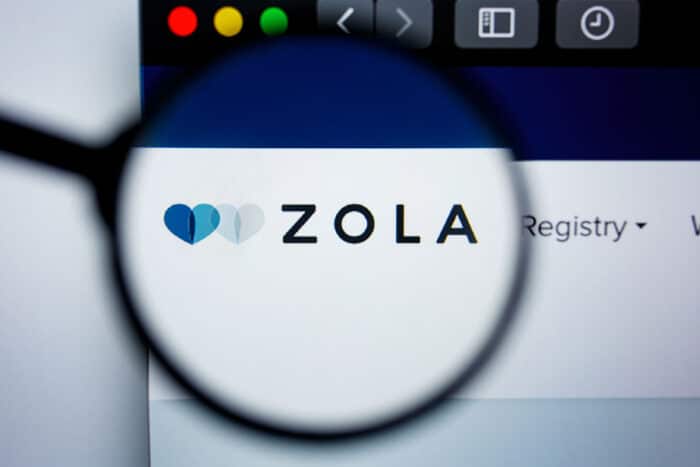
Zola website class action overview:
- Who: A legally blind woman sued the retailer Zola, Inc.
- Why: She says the company does not make its website accessible to blind and visually impaired people.
- Where: The Zola class action was filed in a New York federal court.
Retailer Zola does not make its website accessible to blind and visually impaired people using a screen reader in violation of the law, a new class action lawsuit alleges.
Plaintiff Jenny Hwang filed the class action lawsuit against Zola, Inc. Sept. 23 in a New York federal court, alleging violations of the Americans With Disabilities Act (ADA).
Hwang is a visually impaired and legally blind person who requires screen-reading software to read website content using her computer.
According to her lawsuit, retailer Zola has failed to design, construct, maintain and operate its website, www.zola.com, to be fully accessible to and independently usable by her and other blind and visually impaired people.
“Zola.com contains significant access barriers that make it difficult if not impossible for blind and visually impaired customers to use the website. In fact, the access barriers make it impossible for blind and visually-impaired users to even complete a transaction on the website,” the Zola class action alleges.
Zola website contains multiple access barriers, lawsuit alleges
Zola.com contains multiple pervasive access barriers, the lawsuit alleges.
The barriers include inaccurate landmark structure, inadequate focus order, ambiguous link texts, changing of content without advance warning, lack of alt-text on graphics, inaccessible drop-down menus and a lack of navigation links, according to the Zola class action.
“Due to Zola.com’s inaccessibility, Plaintiff and blind customers must in turn spend time, energy, and/or money to make their purchases at traditional brick-and mortar retailers,” the lawsuit states.
Hwang sued on behalf of all legally blind people in the United States who tried to use Zola.com and could not.
She’s seeking an injunction forcing the company to make its website accessible, certification of the class, damages, fees, costs and a jury trial.
Meanwhile, consumers recently filed a number of class action lawsuits against companies including Electronic Arts, Russell Stover, HSN, Etsy, Dark Horse and others over accessibility issues. Click here for more information.
What do you think of the Zola class action? Let us know in the comments!
The plaintiff is represented by Mars Khaimov of Mars Khaimov Law, PLLC.
The Zola website class action lawsuit is Jenny Hwang v. Zola, Inc., Case No. 1:22-cv-05723 in a U.S. District Court Eastern District of New York.
Don’t Miss Out!
Check out our list of Class Action Lawsuits and Class Action Settlements you may qualify to join!
Read About More Class Action Lawsuits & Class Action Settlements:
- Western Union class action alleges website inaccessible to blind, visually impaired
- Chic Soul class action claims website inaccessible to blind, visually impaired users
- Chicago Cubs lawsuit alleges Wrigley Field does not have enough wheelchair-accessible seats
- AT&T class action claims T-Mobile falsely advertises that AT&T bans senior discount















One thought on Zola class action claims website inaccessible to visually impaired, blind consumers
Add me